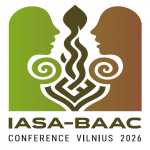4. Collecting priorities
It is difficult to generalize on the criteria needed for setting collecting priorities simply because the linguistic situation varies so much from place to place. However, it is important today that whatever priorities are agreed upon should take into account the requirements of the Third World communities who provide the data as well as the interests represented by researchers. With proper consultation there is no ' reason why this should involve any conflict of interests. For example, a community's aspirations for a bilingual programme could easily be matched with a linguist's research interests which sometimes are not so immediately applied. 'People come along and take the language from us, they get degrees and jobs and we get nothing!' is a complaint too often heard and well worth avoiding. A linguistic revival project inspired by a community whose language is on the wane could closely complement a collector's research interests and at the same time offset the hostile reaction that might have resulted from the researcher embarking on an unsolicited linguistic salvage project.
In purely linguistic terms the absence of information, whether written or sound recorded, will suggest the languages which should be given special attention. Where linguistic sub-grouping has already gone ahead a language from a sub-group or a language family, none of whose members have been studied, should receive priority. On the other hand if linguistic sub-grouping for an area is not available or is still fairly crude, high priority should be given to a collecting programme which surveys a large number of languages, concentrating on those features which will assist in producing a picture of how all the languages are related to each other. When this is known it is far easier, especially in a language salvage operation, to make the difficult decision as to which language(s) will remain largely unrecorded.
There will usually be a limited number of experienced researchers and an apparently unlimited number of languages requiring further study. The ongoing business of finding out where the gaps are and deciding which ones to fill is covered in sections 6 and 7 but here it seems worth putting forward some remarks on how much recording should be done. People tend to fall into two categories: those who use a lot of tape and those who use little. The ones who use little tape tend to produce neater (almost edited) recordings with full transcriptions. Those who use a lot of tape are sometimes said to have 'low yield' recordings since the information they have been seeking forms but a very small portion of what they have actually collected. To give an example, linguists at an early stage in work on an unstudied language frequently carry out simple lexical elicitation: 'What is the word for "hand"? ‘Ngani'; 'How do you say "food"?' 'Batu'; and so on. The parsimonious tape user might produce a recording lasting ten minutes on which there are one hundred words while the conspicuous consumer gets the one hundred words in a recording lasting an hour and a half. Which is preferable? There is no simple answer but a long, low-yield recording can prove to be more valuable. The 'background' discussion, usually in the language of the speakers, can later in the study become the primary object of investigation while the other material now becomes the 'background'. This will only be possible when the investigator can throw light on areas such as the ethnography of speaking, attitudes to language, sociolinguistics as well as providing the researcher with a body of unsolicited text material.
Returning to the examples above, rather than a one-word answer batu (food) there could be a discussion among the language speakers about an appropriate answer. It might seem strange that there would be anything to discuss but in the Australian language, for instance, there would be at least two 'correct' answers: minya (flesh food, meat) and mayi (vegetable food). Again, in English, there are various possible answers: 'grub', 'tucker', 'chow', 'meat' (as in 'sweetmeat'), etc. Remarks on the answer like 'But, that's slang' might not be communicated directly to the investigator but be recorded on the taped interview as background information. For the speakers themselves or their descendants this longer version can be of more interest too since they can hear the language as it was spoken or, in a salvage situation, they will hear their (sometimes deceased) relatives talking in a form of English -which, incidentally, may be of interest to those involved in pidgin or creole studies.
Of course the two positions have been represented here in an extreme way and what is often done is some kind of compromise. On the debit side for doing 'full' recordings it should be noted that transcription is highly labour intensive, particularly so in a language not very familiar to the transcriber. Thus the fate of many 'full' recordings is that it may be a long time before they are transcribed and consequently they will be of less immediate value to the archive and its users.


